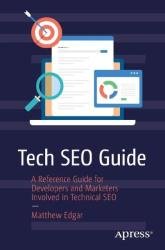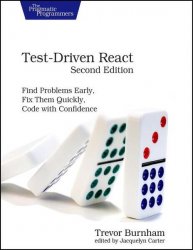 Название: Tech SEO Guide: A Reference Guide for Developers and Marketers Involved in Technical SEO
Название: Tech SEO Guide: A Reference Guide for Developers and Marketers Involved in Technical SEOАвтор: Matthew Edgar
Издательство: Apress
Год: 2023
Страниц: 155
Язык: английский
Формат: pdf, epub, mobi
Размер: 10.26 MB
Tech SEO Guide provides a reference for everyone who works on the technical side of SEO. SEO has always had a technical component but over the last several years, the technical challenges are increasing as websites deliver richer and more engaging experiences. Those experiences can make it harder for Google to crawl a website and rank a website in search results. Given how important organic search rankings can be for a website’s traffic, it is more important than ever to make sure the technical fundamentals are in place to support a website’s SEO performance.
SEO professionals includes marketers, developers, programmers, UX professionals, designers, and business executives because technical SEO impacts and overlaps with so many different areas of a business. Because the book addresses a wider audience, it provides technical details but also includes higher-level discussions about how search engines and robots work too.
What Is Technical (Tech) SEO? Technical SEO, or tech SEO, is the ongoing process of optimizing a website’s code and server configuration to better communicate with search engine robots. The goal is to make it easier for robots to crawl the website so that robots can more easily index the page contained on the website. The more easily robots can crawl and index a website’s pages, the more likely it is that the website will earn higher rankings in organic search results and drive more visitors to the website from those results.
Beyond SEO… The process of technical SEO, however, requires thinking about more than search engine robots. Optimizing a website’s technical structure also improves the experience humans have when visiting the website. Websites that load fast will be easier for robots to crawl and will likely receive a boost in rankings, but faster loading websites also create a better experience for visitors, resulting in greater engagement and conversions. The same is true for websites that contain fewer errors—fewer errors mean fewer problems for both robots and human visitors. Websites that offer more robust navigation paths will help robots find and index more pages on the website but will also help visitors find and engage with more pages. Removing duplicate or low-quality content will lead to better rankings but will also reduce the chance visitors will be driven away from the website by that content. Making a website’s design friendlier on mobile devices will help comply with Google’s mobile ranking factors and will also help visitors engage with the website on mobile devices.
In short, improving the technical factors discussed has tremendous benefits to the website’s overall performance beyond higher rankings and traffic. While this book focuses on the search-related benefits of improving the website’s technical structure, it is important to remember there are many other benefits to consider and measure as well.
There are many different aspects of technical SEO and it is difficult to keep track of every detail, especially for people who only work on technical SEO matters on an occasional basis. Because of that, this guide book can be read all at once for those wanting to study technical SEO in detail or it can be read a paragraph at a time, allowing people to refer back to quickly jog their memory or review a complex topic. Each chapter walks through a different area of technical SEO, addressing specific scenarios and questions about that particular area. After discussing each section, the chapter will conclude with a summary of the important items to measure and monitor related to that section.
What You Will Learn
What factors to keep in mind as you begin a redesign of the website
How to evaluate technical factors to see if a technical configuration is causing traffic to drop
How to perform regular audits of a website to identify problems or areas of opportunity
Who This Book is For
Marketers, developers, programmers, UX professionals, designers, and business executives
Contents:
Introduction
Chapter 1: Crawling and Indexing
Chapter 2: URL and Domain Structure
Chapter 3: Content Structure
Chapter 4: Schema and Structured Data Markup
Chapter 5: Sitemaps
Chapter 6: Page Experience: Core Web Vitals and More
Chapter 7: Not-Found Errors
Chapter 8: Redirects
Chapter 9: Conclusion: Tech SEO Audit
Appendix A: HTTP Response Status Codes
References
Index
Скачать Tech SEO Guide: A Reference Guide for Developers and Marketers Involved in Technical SEO
[related-news] [/related-news]
Комментарии 0
Комментариев пока нет. Стань первым!















